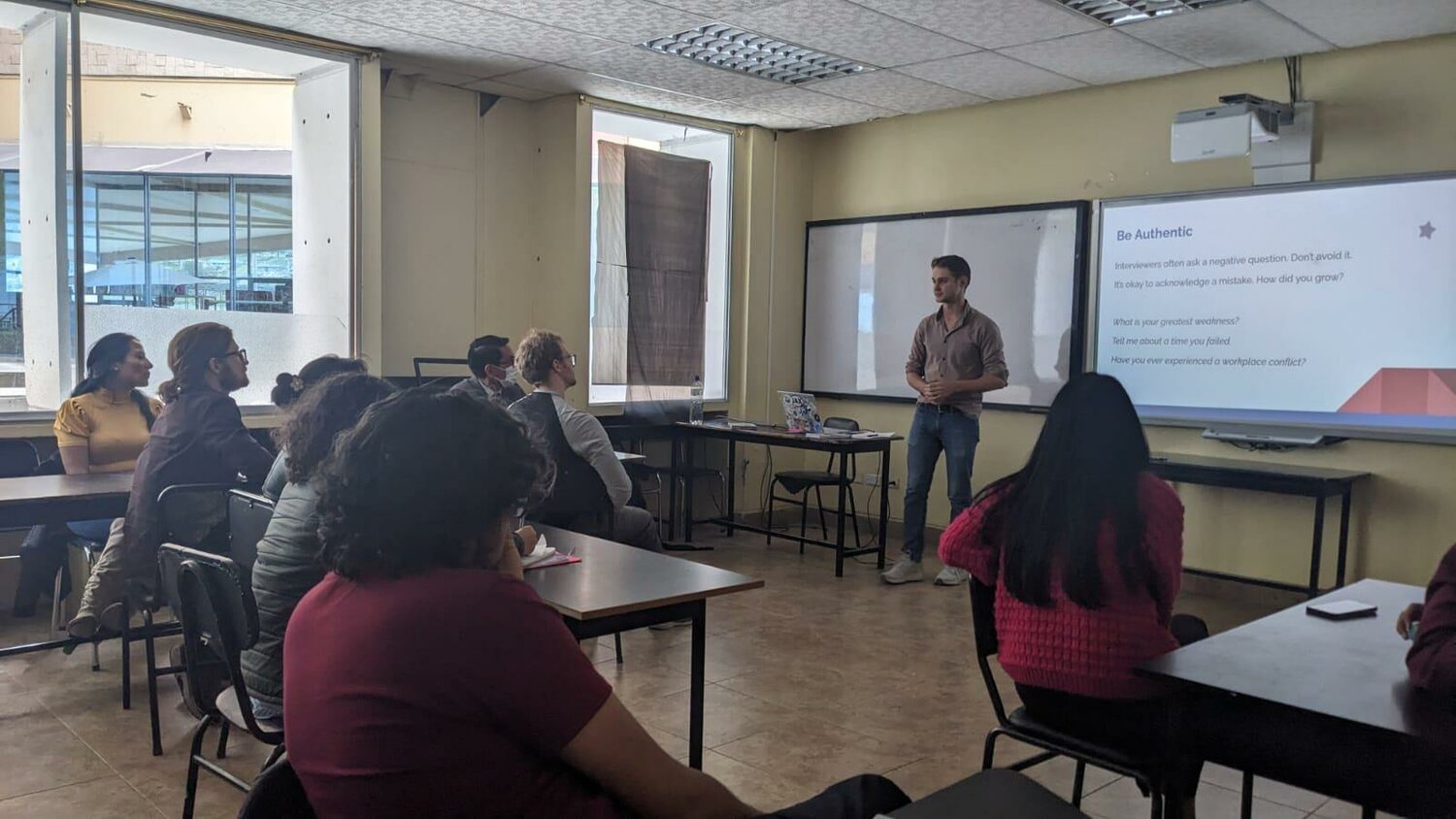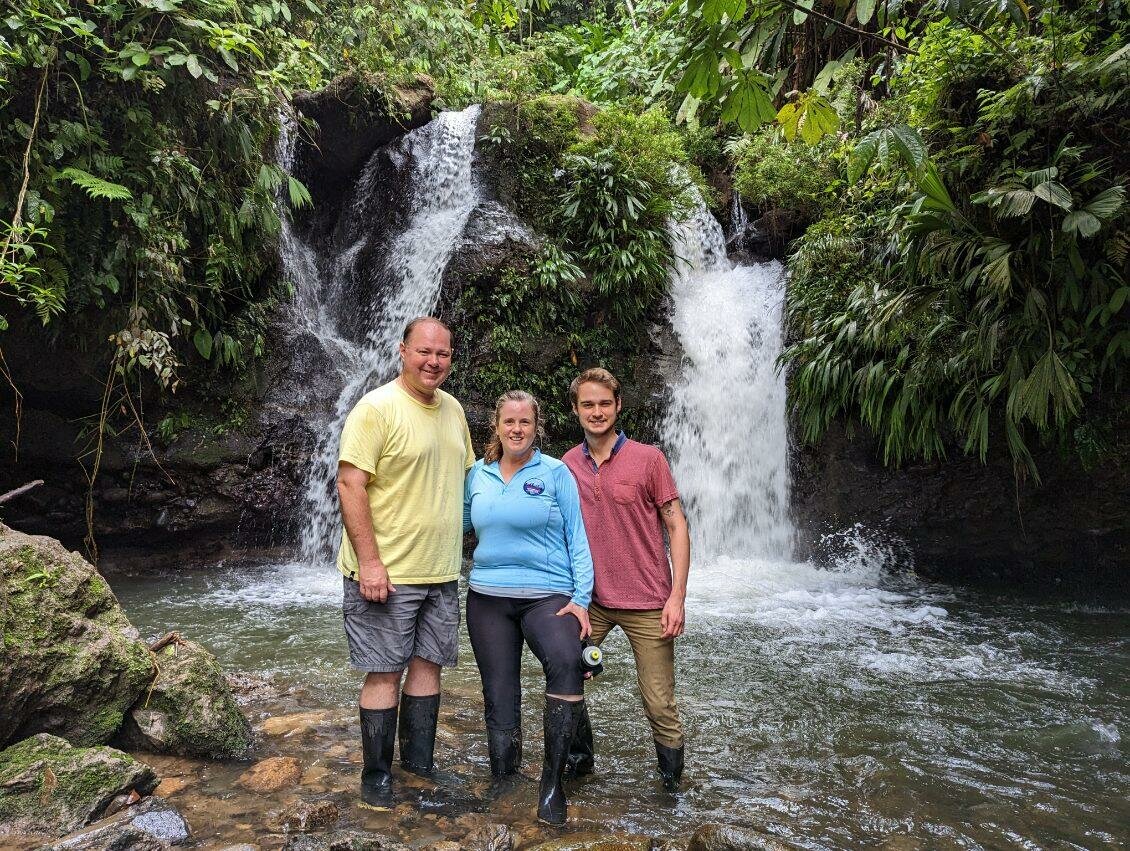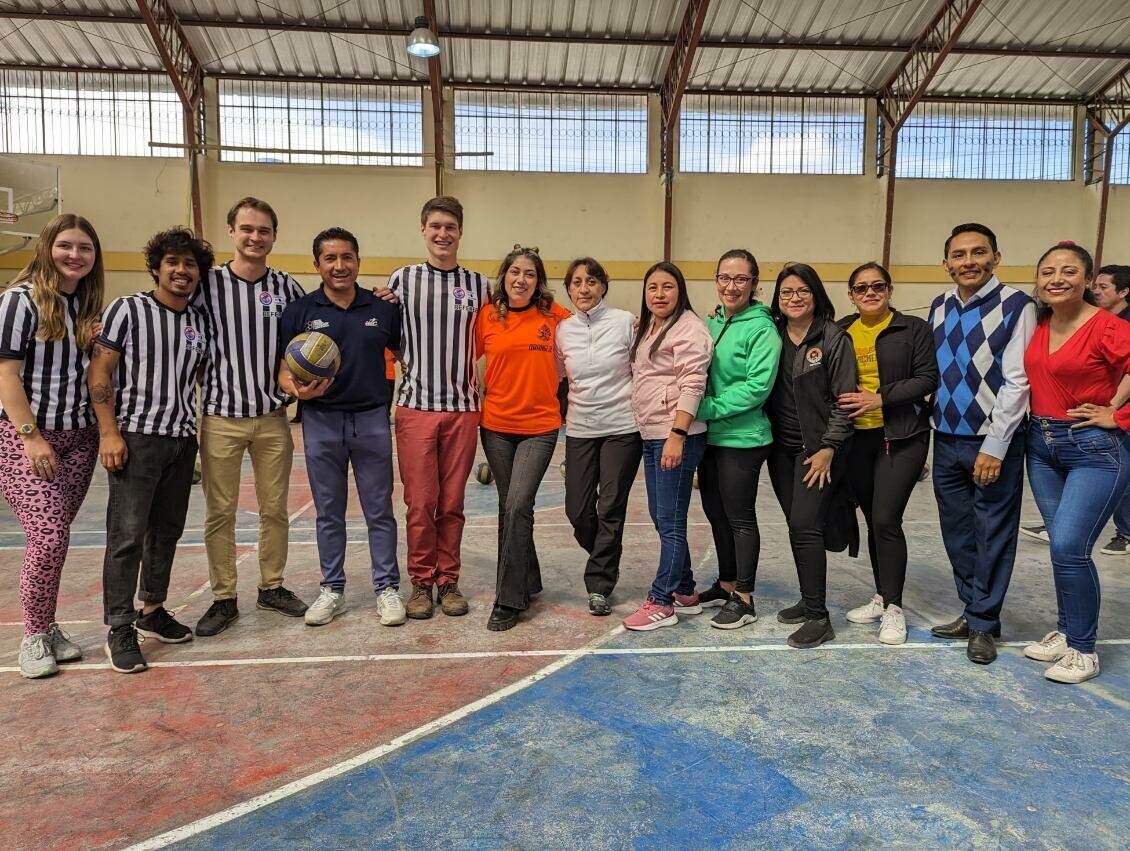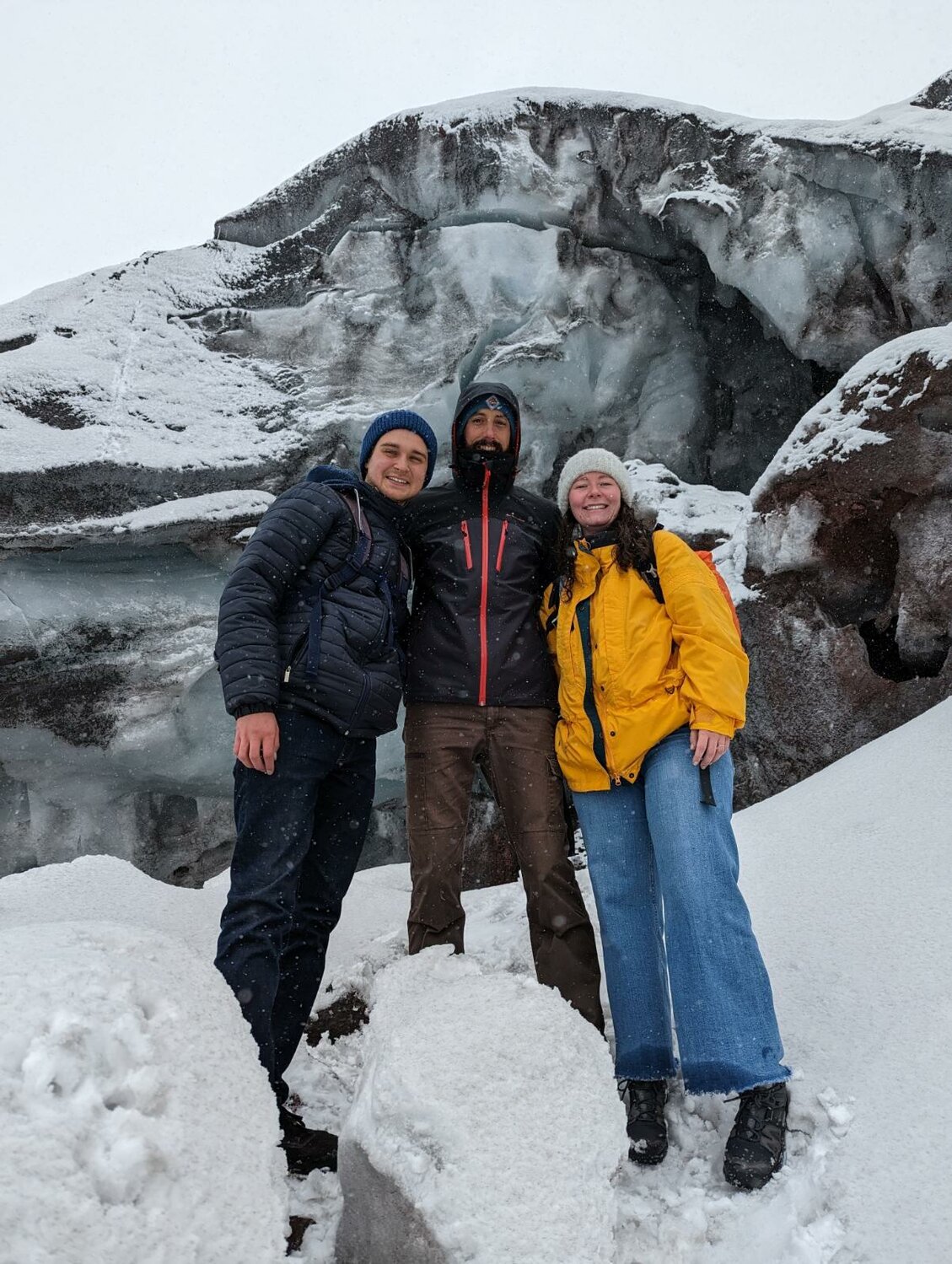Nathan Campbell returns home from the Peace Corps
Teaching English during a nationwide state of emergency
jack@claytodayonline.com
ORANGE PARK – After two years serving in the Peace Corps, a U.S. agency that sends American volunteers to developing countries, Nathan Campbell has returned home. Campbell taught …
This item is available in full to subscribers.
Attention subscribers
To continue reading, you will need to either log in to your subscriber account, below, or purchase a new subscription.
Please log in to continueDon't have an ID?Print subscribersIf you're a print subscriber, but do not yet have an online account, click here to create one. Non-subscribersClick here to see your options for subscribing. Single day passYou also have the option of purchasing 24 hours of access, for $1.00. Click here to purchase a single day pass. |
Nathan Campbell returns home from the Peace Corps
Teaching English during a nationwide state of emergency
ORANGE PARK – After two years serving in the Peace Corps, a U.S. agency that sends American volunteers to developing countries, Nathan Campbell has returned home.
Campbell taught college students English at the Universidad Tecnica de Cotopaxi, a university located in Latacunga, Ecuador. Campbell enjoyed teaching and watching his students grow; however, life in the country posed significant risks even before Ecuadorean President Daniel Noboa declared a state of emergency in January of this year.
Campbell was robbed just six months into his Peace Corps program. After the violent ordeal and being stripped of all cash, he called home. His mother, Orange Park Town Manager Sarah Campbell, answered the phone.
"She cried when I told her. She said, 'Are you sure you want to stay?'" Campbell said.
Owning it to his students and wanting to prove something within himself, Campbell decided to stay and finish his two years teaching English in Ecuador.
He said the misfortune was not exclusive to him – "nearly all" of the 200 Peace Corps volunteers in Ecuador had been robbed or assaulted. It was a dangerous area, and Campbell said the Peace Corps administration in Ecuador was not proactive or accommodating.
The Peace Corps gave some forewarning that the volunteers "may be robbed," and if they are, it is best to cooperate for their safety.
A state of emergency was declared after a notorious drug lord escaped prison. Criminal groups embarked on a wave of violent attacks throughout the country, such as when armed insurgents hijacked a live news broadcast.
It was a grim backdrop on what is otherwise a beautiful country.
Even though the city is located close to the equator, Campbell recounted how Latacunga would often be chilly due to its high elevation. The university Campbell taught at was named after the picturesque Cotopaxi volcano, one of the highest active volcanoes in the world.
"(Cotopaxi) was a public university. It was difficult. Unlike (universities) here, they're not as well-funded, not super formal. Not a lot of resources. Overcrowded classrooms. Projectors that didn't work. That whole thing," Campbell said.
The university had electricity and internet, but a lack of resources led Campbell to take a creative approach in his lesson plans.
"I tried to do silly, fun stuff to get them to like English," he said.
Campbell hosted English movie nights, which premiered "Elf" and "Mean Girls"—the 2004 original, not the 2024 remake. Students read "To Kill a Mockingbird" and were assigned discussions on the British teen comedy TV show Sex Education." Campbell also introduced his students to the American sport of dodgeball.
"The dodgeball tournament was a blast. They made their own chants and came in wearing matching uniforms," he said.
Campbell selected one of his advanced course students for an international study abroad program. She was selected for her English proficiency and unquenchable curiosity.
"She was always attentive in class," Campbell said. "It was cool to see the English teaching pay off."
Campbell took advantage and explored the country when he wasn't teaching. He said he was two or three hours away from the Amazon rainforest and its lush, viridescent foliage with "crazy flowers." On the edge of the Amazon, Campbell tried a bowl of grub beetles, a jungle delicacy.
"Yes, very 'Hakuna Matata,'" Campbell recounted.
With a tattoo of a grub beetle on his right arm, he evidently enjoyed the dish.
Campbell said the highlight of those two years was the relationships he made along the way. Although his wallet was cleaned out, no one can take away the memories he made with his students, fellow teachers and other volunteers. Life in Ecuador was a challenge for the volunteers, so it is undoubtedly a challenge for the citizens. Campbell hopes that conditions improve in the nation, and he is proud to have made a positive impact.
Ultimately, Campbell is glad he finished his two-year tenure. He laughs about that traumatic experience when talking about it back home in Orange Park.
"What can scare me now?" he said.














